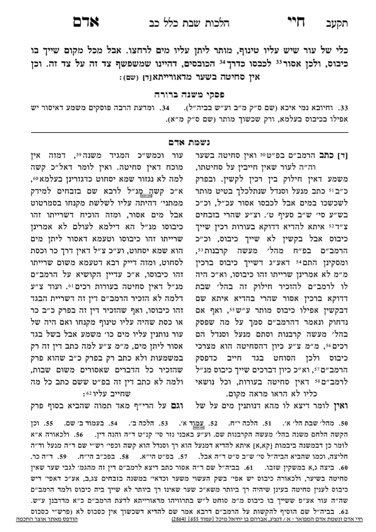We are beginning siman 22. The Chayei Adam writes that it is muttar to go to the mikvah on Shabbos. There are few concerns to discuss. The first is the concept of tikkun, which is an issur derabanan against fixing an item. The process of going to the mikvah is a taharah process, similar to spearating terumos and maasros from food, and one could argue that going to the mikvah should be assur in the same way it is assur to separate terumos and maasros. The Gemara concludes that it is muttar because people will just assume the person went into the water to cool themselves off. Therefore, when there is no physical tikkun and it is not discernable to others, Chazal did not extend their gezeira.
The Gemara continues, and asks that going to the mikvah should be assur because of the sechita to one’s hair. The Gemara answers that sechita on hair is not deoraysa, but only derabanan, and Chazal did not extend their issur to the mikvah (due to the mitzvah element).
The Gemara also discusses whether squeezing the water out of one’s hair is dosh, and concludes that since the water is being discarded, it is not considered dosh. Definitionally, dosh only applies when the item separated out is kept.
The Chayei Adam continues, and writes that maybe it should be assur to go to the mikvah because one may press hard with their towel. Additionally, one may squeeze their towel once it is waterlogged. If one is using a garment that they do not mind getting wet, such as a towel, it is less of a problem, but the Chayei Adam is assuming one is using clothing.
The Chayei Adam concludes that even though there are strong arguments that going to the mikvah should be assur, it was necessary for people to be able to be metaheir themselves, so Chazal did not extend their gezeiros to the mikvah. When one is able, they should dry themselves with a towel or other garment that they do not mind getting wet, but if one does not have any other option, it is muttar.
There are three cases under discussion in this Chayei Adam:
- Women will use the mikvah for tumas niddah
- Men will use the mikvah for tumas keri
- Going to the mikvah for the purpose of tosefes kedusha, adding kedusha to oneself.



